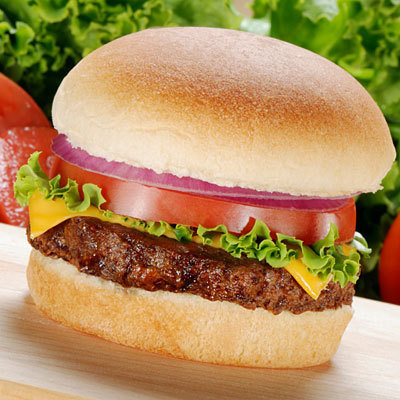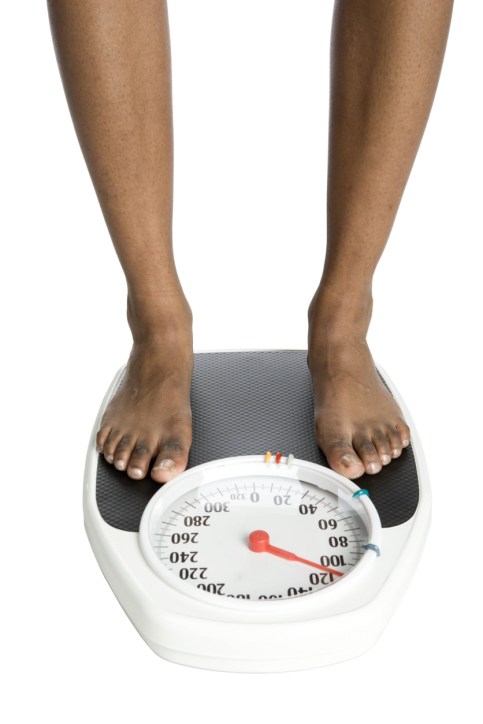How Diet Can Affect Your Metabolic Rate
Metabolism is a relatively new word in our every day vocabulary, mostly due to weight loss and metabolism-enhancing products advertising. It’s hardly possible to separate facts from myths, but there is one thing we can be sure of: it IS possible to improve one’s metabolism as well as general health conditions. The key is understanding of the meaning of metabolism and ways to improve it.
Faster metabolism enables one’s body to burn more calories, and therefore to lose more weight. However, there are some factors one can control and change, and some factors one can't. Two of the main body conditions we can’t change are age and gender; metabolic rate starts decreasing after 40, and men generally burn calories more quickly than women because they have more muscle tissue. Another important factor is heredity – fast or slow metabolism can be inherited from previous generations.
The term “metabolism” goes hand in hand with “nutrition”. The first step in speeding up the metabolism is eating small frequent meals. Extending the time between meals causes "starvation mode" which makes body conserve more energy. It is recommended to have four to six small meals per day including healthy snacks. Another advice every nutritionist would give is drinking more water, since 90% of the chemical reactions in human body occur in water. What you may not know, is that cold water has a big advantages over warm water, when one drinks ice cold water, the body burns calories warming it up to its temperature.
There are many pills and supplements that claim to speed up the metabolism and burn fat. Most of these claims are unproven. Some chemicals, such as nicotine and caffeine, do have a small effect, but any increase in the metabolism may be accompanied by an increase in the heart rate and other side-effects, and so aren't recommended as a treatment for obesity.
One should keep in mind that metabolic rate inevitably slows down when you lose weight. It is not necessarily because of the muscle loss, the main reason is that the body has less weight to carry around, so it can survive on fewer calories. This is why it’s very important to keep track of one’s goals and results, namely to be aware of how many calories one needs to keep losing weight. It is generally believed that the best way to lose weight is a diet, and that is probably true in a short term. However, diet can be ruining for one’s metabolic rate. Surprisingly, rather than helping us to reach our target weight more quickly, severely restricting calories actually prevents our bodies from burning unwanted fat stores effectively - and this means that weight loss slows down. When burning calories, the body burns both fat and muscle, so it’s very important to build muscle at the same time. While physical activities like jogging, swimming, walking and aerobics help to tone muscle and burn fat, strength or resistance training will increase the amount of body muscle.
One of the biggest metabolism myths is thinking that one eats very little and still puts on weight, in other words, many people assume they have slow metabolism. In fact, research has shown people tend to eat more than they think. When asked to write down everything they've consumed in a day, people tend to report eating far less than they actually do. This may be to impress the researcher or because they genuinely forget to include some items. The bottom line is you'll gain weight if you consume more calories than your body needs. This can be a difficult fact to face, but recognizing the need for change is vital for successful weight loss.
-
Get Yourself A Flat Belly In 14 Days? – Absolutely!
To get a flat tummy in 2 weeks seems impossible when you’re gett
-
Can Vitamin B Help You Lose Weight?
Your body cannot produce B vitamins but they are very important vit
-
Fitness Hack: Shed Fat and Say Goodbye to Cellulite This Summer!
Cellulite can leave us v
-
The Perfect Diet
The Perfect Diet This makes for a great magazine headline on your n
-
New Years Fitness Resolutions Why Do You Break Them Part 1
Easy Outs!Lets say youre having dinner with someone and you know that
-
How to Reduce the Physical and Financial Stress of Chronic Degenerative Diseases
Are you experiencing the physical and financial effects of Chronic
- DON'T MISS
- The Weight Loss Fight of Today - You Can Win
- Weight loss: Feel full on fewer calories
- Fatloss4idiots Diet -Does It work ?
- Cheap Solar Panels - At Last ? -
- The Function of Sauna Suits
- The Secret to Eating As Much As You Want And Losing Weight
- Ways to Lose Weight in 3 Weeks
- How Lifting Weights Helps You Burn Fat
- Two Words That Guarantee Success Or Failure When Planning To Lose Weight
- Learn about dietary fats




